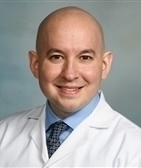Attention: Restrictions on use of AUA, AUAER, and UCF content in third party applications, including artificial intelligence technologies, such as large language models and generative AI.
You are prohibited from using or uploading content you accessed through this website into external applications, bots, software, or websites, including those using artificial intelligence technologies and infrastructure, including deep learning, machine learning and large language models and generative AI.
Dates to Remember
December 31, 2024
CMS deadline to apply for the 2024 Extreme and Uncontrollable Circumstances (EUC) and Promoting Interoperability (PI) hardship exemptions.
January 2025
CMS 2024 MIPS pre-submission audits are conducted.
February 26, 2025
Last day to upload the Health Insurance Claim Form (CMS 1500 Form) and sign the Data Release Consent Forms (DRCF) via the AQUA Registry dashboard.
March 14, 2025
The AQUA Registry’s internal 2024 MIPS submission deadline.
March 31, 2025
CMS’ official 2024 MIPS submission deadline.
Rising Stars in Urology Research Awards

Joseph Crivelli, MD
2024–2028 Award Winner
Assistant Professor, Department of Urology
University of Alabama at Birmingham
Research Project: "Social and Dietary Determinants of Kidney Stone Risk"
Sponsor: Astellas Pharma, US, Inc.
Abstract:
Kidney stone disease (KSD) is a common health problem which causes people to have a lower quality of life. Historically, Black and Hispanic individuals have had fewer kidney stones than White individuals. However, the number of cases among Black and Hispanic people is rising faster than among White people. There is evidence that social factors, like income and access to healthcare, play a role in this increase, but the exact impact on different racial and ethnic groups hasn't been well-studied. Diet and lifestyle also affect the risk of kidney stones. This project aims to study how social factors and diet influence the risk of kidney stones in diverse populations. We have three main goals: 1) Identify factors linked to the risk of kidney stones in a diverse group of people from five different studies; 2) Look at how changes over time in factors like diet, weight, and social conditions relate to kidney stone risk in participants of the CARDIA study, which has followed a cohort of Black and White adults for over 35 years; and 3) Test if adopting a healthy diet, specifically a DASH diet, can reduce the risk of kidney stones in people who already have them. This will be done through a controlled diet study with CARDIA participants. By using resources from our institution, including the Birmingham Field Center for CARDIA and our Bionutrition Unit, we expect to better understand the role of social and dietary factors in kidney stone risk in diverse populations.

Kymora B. Scotland, MD, PhD
2023–2028 Award Winner
Assistant Professor, Department of Urology
Director of Endourology Research
Associate Director, Endourology Fellowship Program
University of California, Los Angeles
Research Project: "Elucidating the Role of Biofilm-Forming Bacteria in Nephrolithiasis"
Sponsor: Frank and Marion Hinman Urology Research Fund
Abstract:
The goal of Dr. Scotland’s proposal is to determine the role of bacteria in the growth of calcium-based kidney stones and thus the significance of bacteria to kidney stone disease. Nephrolithiasis (kidney stone disease) is increasingly prevalent, affecting over 35 million (11%) North Americans per year, and remains a serious health concern due to its association with severe pain, life-threatening infection, and potential damage to kidneys. Moreover, the rate of recurrence is high, with approximately 50% of patients experiencing another stone episode within 5 years of their first treatment. Thus, kidney stones pose a substantial financial burden on the medical system, with the annual direct and indirect costs estimated at more than $5 billion in the United States. Approximately 80% of kidney stones are composed of calcium oxalate. Successful prevention requires a clear understanding of the mechanisms involved in stone formation. However, the actual process of calcium stone formation is not well understood. Emerging data suggest that bacteria may play a critical role in stone formation. Recent studies have identified bacteria in calcium stones collected from patients who had no evidence of urinary tract infection, suggesting that these bacteria are not simply bystanders but may in fact influence stone formation. Dr. Scotland’s research hypothesizes that bacteria interact with calcium stones and that this interaction plays a key role in the propagation of the stones. During the 5-year Rising Stars in Urology Research Award, Dr. Scotland will investigate stone biofilm formation from bacteria to see whether this process contributes to kidney stone layering. The project will explore the role of surface sensing in the bacteria-kidney stone interaction, evaluating whether known pathways are involved in triggering stone formation. Lastly, the project will investigate how bacteria respond to calcium oxalate crystals and kidney stone propagation in urine using a three-dimensional kidney model that Dr. Scotland’s lab has developed. Successful completion of this research will provide valuable insight into future strategies to treat kidney stone disease.

Ryan K. Flannigan, MD
2022–2026 Award Winner
Assistant Professor, Department of Urological Sciences
Director of Male Reproduction and Sexual Medicine Research Program
University of British Columbia
Research Project: "Leveraging Computational Modelling and 3-D Bioprinting in Pursuit of a Regenerative Therapeutic Approach for Male Infertility"
Sponsor: Astellas Pharma, US, Inc.
Abstract:
Leveraging computational modelling and 3-D bioprinting in pursuit of a regenerative therapeutic approach for male infertility, Dr. Flannigan aims to develop technology toward establishing a regenerative therapy platform to grow sperm from a patient's stem cells in a laboratory setting. His project proposes to utilize state-of-the-art single cell sequencing and associated computational technologies to reveal molecules that are key regulators of developing sperm from stem cells. Since the production of sperm from a stem cell involves several stages of changes to the cell, his lab has uniquely segmented this process into well described stages, so that each stage can be studied independently and precisely. Stage-specific findings will then be screened with small molecules and growth factors to identify the most critical molecules that promote stem cells to mature into sperm. Lab-grown patient testis cells will be 3D bio printed into tubular structures similar to those found within the human testis that naturally coordinate sperm production. Results from this study will contribute to developing the understanding and technology to regenerate sperm for males lacking any ability to father biological children. This technology is particularly salient considering the pervasiveness of infertility in prepubertal men surviving cancer treatment and among 15% of couples globally, with male factors contributing to 50% of infertility cases.

A. Lenore Ackerman, MD, PhD
2021–2024 Award Winner
Assistant Professor, Urology
Director of Research, Division of Female Pelvic Medicine and Reconstructive Surgery
University of California, Los Angeles
Research Project: "The Urinary Microbiota and Host Inflammation in Lower Urinary Tract Symptoms"
Sponsor: Frank and Marion Hinman Urology Research Fund
Abstract:
Focusing on the roles that urinary microbes (the “urobiome”) play in the lower urinary tract, Dr. Ackerman will examine urinary bacterial and fungal communities in different types of voiding dysfunction to identify patterns in the urobiome associated with specific lower urinary tract symptoms. Her studies will include an exploration of the co-occurring patterns of urinary inflammation as well as an investigation of human genes that may confer an increased risk of disease. The application of large-scale systems biology approaches to voiding dysfunction and the integration of these data with detailed patient symptomatic phenotyping will facilitate a deeper understanding of the mechanistic foundations of these syndromes. The integration of this kind of multi-“omic” data will help allow the discovery of clinically useful disease markers, both microbial and inflammatory, that may provide needed prognostic information for patient care. It will also help to explore the molecular mechanisms underlying different forms of voiding dysfunction to aid in the future development of new management and therapeutic approaches.
